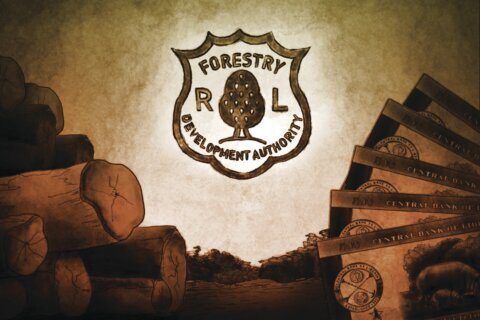BOSTON (AP) — Wildlife protection advocates are welcoming a decision by the Massachusetts Marine Fisheries Advisory Commission to approve protections for horseshoe crabs during spawning, which is when the creatures are at their most vulnerable.
The move comes as interstate regulators are limiting the harvest of the primordial species of invertebrate to try to help rebuild its population and aid a threatened species of bird.
Horseshoe crabs predate the dinosaurs, having inhabited ocean environments for more than 400 years, but their populations have been depleted for decades due to harvest in part for bait to catch eels and whelk, a species of sea snail.
Their blood is also used to test for potentially dangerous impurities by drug and medical device makers.
The regulation needs final approval by Gov. Maura Healey, expected in the coming months.
David O’Neill, president of Mass Audubon, said he was ecstatic over the new regulations.
“Protecting horseshoe crabs during spawning season is incredibly important to getting this keystone species back to historic population levels that are critical to the health of coastal ecosystems, including the migratory birds that rely on them,” O’Neill said in a statement.
He said Massachusetts had been lagging behind other East Coast states that have strengthened protections for horseshoe crab populations including New Jersey, Delaware, and South Carolina.
The animals have been declining in some of their range, and they’re critically important as a food source for the red knot, a migratory shorebird listed as threatened under the Endangered Species Act.
The regulatory Atlantic States Marine Fisheries Commission said it will allow no harvest of female horseshoe crabs that originate in the Delaware Bay during the 2024 fishing season, but it will allow more harvest of male horseshoe crabs in the mid-Atlantic to help make up for that.
Despite their names, horseshoe crabs are not really crustaceans but are more closely related to spiders and scorpions, according to the National Oceanic and Atmospheric Administration.
Copyright © 2024 The Associated Press. All rights reserved. This material may not be published, broadcast, written or redistributed.






